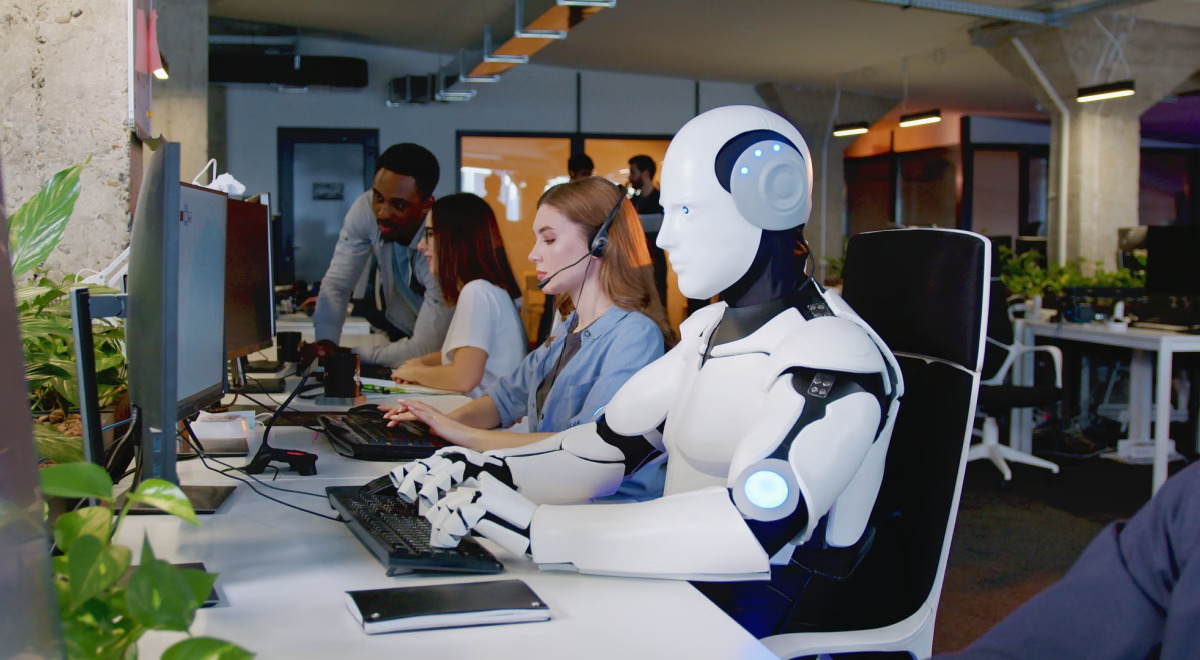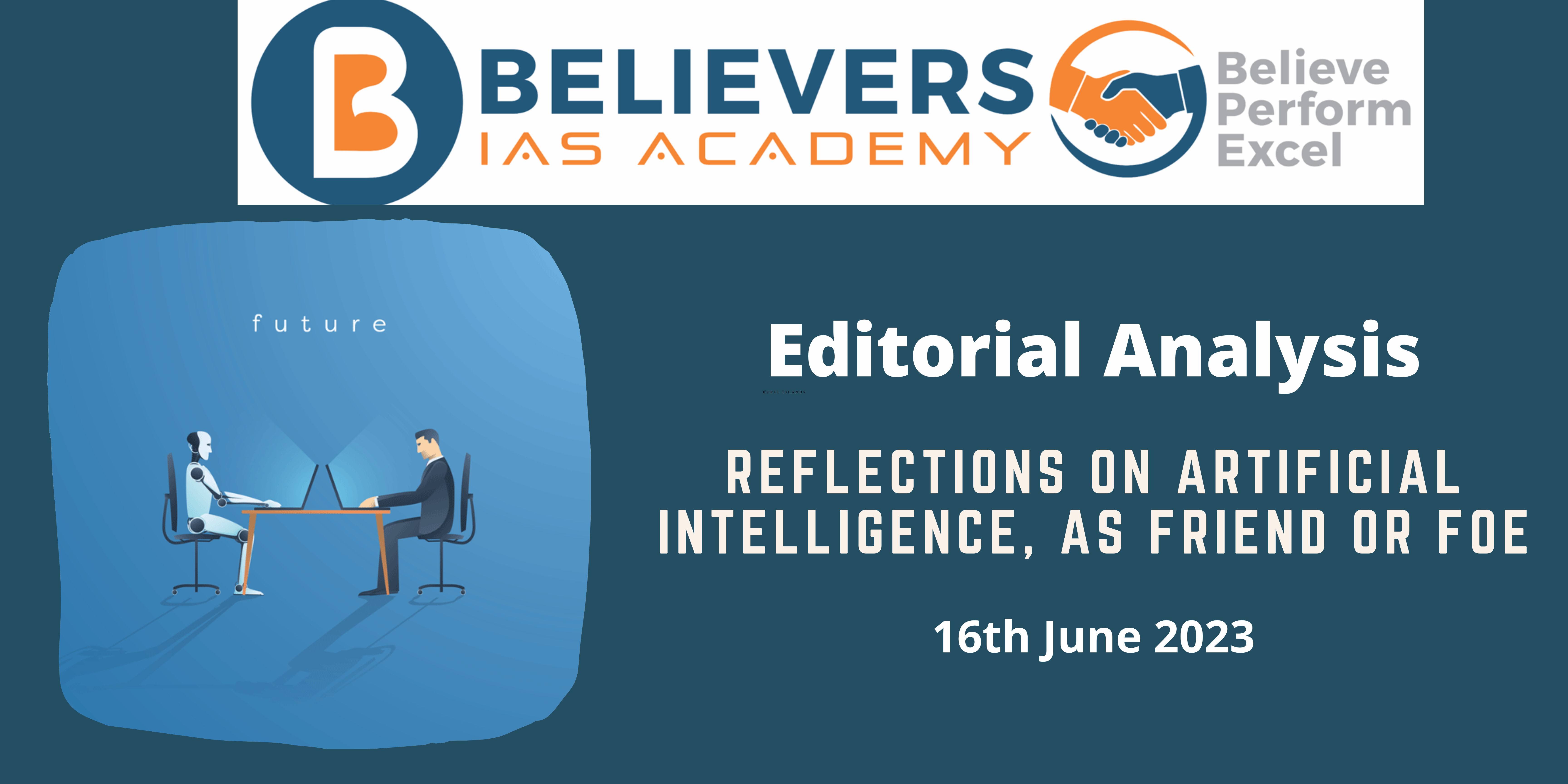Reflections on Artificial Intelligence, as Friend or Foe
Context :
AI has gained attention for its achievements but also raises concerns among experts. The Association for Computing Machinery issued a statement on ‘Principles for Responsible Algorithmic Systems’ in October 2022, while leading experts issued cautionary messages. This raises deep concerns about AI.
Points to Ponder:
Artificial Intelligence

- Artificial intelligence (AI) is intelligence displayed by machines, as opposed to human and other animal intelligence. Speech recognition, computer vision, translation across (natural) languages, and other input mappings are examples of tasks where this is done.
- Advanced web search engines (e.g., Google Search), recommendation systems (used by YouTube, Amazon, and Netflix), understanding human speech (e.g., Siri and Alexa), self-driving cars (e.g., Waymo), generative or creative tools (ChatGPT and AI art), automated decision-making, and competing at the highest level in strategic game systems are examples of AI applications. (such as chess and Go).
- Artificial intelligence (AI) is capturing the interest of business owners, political leaders, and legislators all around the world. The majority of developed democracies are now utilizing AI tools to improve legislation and parliamentary procedures.
- AI tools can help MPs prepare responses for lawmakers, improve research quality, gather information about any Bill, prepare papers, and provide information on specific House rules, legislative drafting, amendments, interventions, and so on.
Superhuman AI:
- There is concern that highly intelligent AI systems may one day outperform humans and endanger humanity.
- The worry is that these AI systems might develop an independent will and act inhumanely, losing control of their behaviour.
Malicious use of AI:
- AI tools can easily be created and put to bad use by those with negative intentions.
- AI-powered technologies have the potential to produce convincing fake news, sway public opinion, or be used in cyberattacks, all of which could result in serious consequences.
- The instantaneous effects of AI’s global nature make it difficult to defend against nefarious behaviours that could harm people, societies, and democratic processes.
AI systems that are difficult to understand:
- AI systems, especially those built on sophisticated techniques like deep learning, sometimes lack transparency and interpretability.
- This lack of transparency gives rise to worries about prejudices, unintentional actions, and the potential for continuing current disparities.
- AI systems are crucial to industries like healthcare and driverless vehicles, and any biases or decision-making mistakes can have serious repercussions.
Lack of Public Oversight and Regulation:
- Commercial entities, with little or no public oversight, are primarily responsible for the development and application of AI technologies.
- These organisations’ goals and interests might not be consistent with promoting the ethical and responsible use of AI.
- Finding a balance between appropriate regulation to handle hazards and ensuring innovation and advancement in the field of AI is the problem.
Ethical and Social Implications
- AI systems’ ethical implications in terms of privacy, security, employment displacement, and socioeconomic inequality are discussed below.
- Existing societal disparities may be made worse by the application of AI algorithms that uphold prejudice or discriminatory practices.
- Concerns about job displacement and the necessity for retraining and upskilling to adapt to the shifting work market are raised by the impact of AI on employment.




